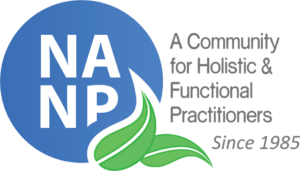By, Cloe Parker of Parker Pastures

My name is Cloe Parker. My family and I are Colorado regenerative ranchers.
Regenerative ranching describes ranching and grazing practices that, among other benefits, reverse climate change by rebuilding soil organic matter and restoring degraded soil biodiversity – resulting in carbon drawdown, an improved water cycle, increased plant and animal biodiversity, and more.
Well-managed cattle are one of our best chances at improving soil health and sequestering carbon. Red meat is also a superfood, rich in high-quality protein, vitamins and minerals.
Red meat is not the enemy.
Not all meat is equal, and I would like to address some of the concerns often cited, and prove the environmental and nutritional case for thoughtfully raised meat.
Reducing Our Carbon Footprint
Thoughtfully managed grazing animals that are raised for meat can increase the soil organic matter.
The soil organic matter at The Van Tuyl Ranch has increased from 6.8% in 2010 to 15% in 2020 because we manage the grazing of our meat-producing animals to mimic nature, and we avoid the use of chemicals on the land and animals.
Soil organic carbon is a measurable component of soil organic matter.
If a notable quantity of carbon is stored in the soil as organic carbon it reduces the amount present in the atmosphere and this helps to reduce global warming. This process of storing carbon in the soil is called soil carbon sequestration.
Thoughtfully managed cows, sheep, and other livestock raised for meat actually offset Colorado carbon emissions by pulling excess carbon out of the atmosphere and storing it where it belongs… in the soil.
It has been estimated that each 1 percent increase in soil organic matter helps soil hold 20,000 gallons more water per acre.(https://www.nrcs.usda.gov/Internet/FSE_DOCUMENTS/stelprdb1082147.pdf. )
Talk about a solution for drought!
Preserving Grasslands and Wildlife Habitats
Parker Pastures meats are Audubon Certified as “Grazed on Bird Friendly Land.”
The Audubon Society launched their Conservation Ranching program several years ago so that when consumers enjoy a package of Audubon Certified beef, they can trust the cattle were raised not only antibiotic, hormone, and cruelty-free, but with the health and habitats of local birds and wildlife in mind.
Program certification is achieved by following a set of program standards in four areas:
- Habitat management
- Forage and feeding
- Animal health and welfare
- Environmental sustainability.
By choosing meats from Audubon-certified ranches like ours, Coloradans can contribute to the expansion of livestock management practices that are better for our health, better for cattle, and better for the environment.
Nutrition
Grass-fed beef is one of the most nutrient-dense proteins you can buy.
It has an extensive micronutrient profile and contains a good amount of brain-boosting omega-3 fatty acids. Benefits from increased omega–3 consumption include decreasing all markers of inflammation, helping with depression, and helping with focus. Recent studies show omega–3s to be a promising alternative to alleviate attention deficit disorders (ADHD) over stimulant medications.
Beef from grass-fed cows also contains a certain beneficial fatty acid called CLA (conjugated linoleic acid). CLA can help prevent several diseases and conditions like obesity and diabetes.
In addition, one serving of grass-fed beef provides an incredibly nutrient dense protein with naturally occurring vitamin E, Riboflavin, Niacin, Vitamin B6, Folate, Vitamin B12, Pantothenic Acid, Choline, Betaine, Calcium, Iron, Magnesium, Phosphorus, Potassium, Sodium, Zinc, and Selenium.
These are only some of the reasons why my family, community, and I choose to include regenerative meats in our diet.
We know and believe that eating grass-fed, grass-finished, regenerative meat raised from holistically managed ranches is the way to combat climate change, degeneration of landscapes, and loss of biodiversity. It also provides a healthier meat choice for people.
Once we acquaint ourselves with these truths, we begin to understand that opting out of meat isn’t going to fix the system.
The solution? MORE BETTER MEAT.
About Chloe Parker
My name is Cloe Parker. My family and I are Colorado regenerative ranchers.
You will find us in the beautiful mountain valley of Gunnison, Colorado stewarding our land with intentional, holistic, and regenerative management of livestock. Our headquarters is on the City of Gunnison’s Van Tuyl Ranch, and we manage several other ranches in and around the Gunnison Valley.
We make our living by raising and direct-marketing our Colorado grass-fed, grass-finished, pasture-raised meat. We provide our meats directly to individuals and families locally, state-wide, and nation-wide through our family-owned company Parker Pastures.
Our most important partners are Coloradans seeking healthy, locally grown, mindful meats they can feel good about eating and conscientious folks across the United States seeking the world-class-regenerative beef that we raise in the mountains of Colorado.
We are part of a world-wide community of holistic & regenerative ranchers and farmers, and we are the co-founders of The Colorado Regenerative Network, which is a Savory Global Hub.
References:
https://www.mayoclinic.org/diseases-conditions/heart-disease/expert-answers/grass-f ed-beef/faq-20058059
https://perfectketo.com/benefits-of-grass-fed-beef/
https://www.huffpost.com/entry/grass-fed-beef-dairy-health-benefits_l_5f15e81bc5b6 15860bb5d3f2
https://sustainabledish.com/meat-is-magnificent/
